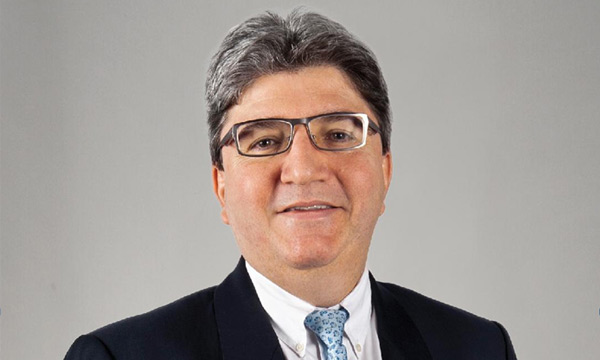"Asia is a booming market which still has some surprises for us" - Thierry Tosi (Rockwell Collins) |
| Interview by Romain Guillot in Singapore |
|
|
29 NOV 2017 | 1055 words
|
 |
© Rockwell Collins |
|
|
|
Le Journal de l'Aviation took advantage of the MRO Asia-Pacific exhibition which was held in Singapore at the beginning of November to meet Thierry Tosi, vice-president and chief executive of Rockwell Collins's Service Solutions division. This was the ideal opportunity to take a detailed look at the American company's MRO activities in Asia and how he himself sees the developments in the region. Interview.
How is Rockwell Collins placed in the Asia-Pacific region in terms of services?
Rockwell Collins has a very significant presence in Asia-Pacific, with over 200 people working in services. We have our Singapore centre, which is our hub for repairs in the region. We also have a joint-venture with China Eastern in Shanghai, which takes care of repairs for the Chinese market. We also have another repair centre in Sydney, but this is mainly dedicated to the products used for Australian military requirements. The Singapore centre also carries out repairs for the defence sector, but most of its activity is for commercial aviation.
What changes have you seen for your activities in Asia?
We have a lot of activity related to air transport requirements of course, with a quickly expanding market in Asia. In the first half of 2017, passenger traffic increased by 11%, which is over double the region's GDP, which is forecast at 5.6% for 2017. Obviously, we are seeing major changes in passenger traffic, but also significant developments in cargo traffic in the region, especially in China with the growth in home package delivery through Internet ordering. Companies like Amazon are seeing very strong growth in the United States, but this sector is also expanding rapidly in China, with growth rates of around 20% via services such as Alibaba.
These high growth rates, in both passenger and freight transport, are generating corresponding growth for us in the region for services. The more planes fly, the more equipment obviously needs to be repaired or upgraded. At the same time, we have noted increased use of business jets, which is also related to the region's strong economic performance. At world level, growth had only been 1% in terms of business aircraft usage rate in 2016, while this sector has grown by 4 to 5% at the end of 2017.
This increase in the use of business jets also brings with it an increase in services, whether for replacing "boxes" on planes, repairs or upgrades. For example, there are numerous business aircraft operators in Asia who need to make their jets compatible with the ADS-B regulations if they want to be able to fly to the United States. All of this is creating particularly dynamic activity in the region.
We are also seeing an increase in military requirements due to unstable geopolitical contexts in Asia, for example with the situation surrounding North Korea. The different governments are acquiring equipment, such as test benches, to ensure more independence in the event of conflict. They also have their aircraft fly more in order to have pilots who are ready for combat. All of this, combined with a fall in the price of fuel, is leading to an increase in maintenance requirements.
Is Rockwell Collins's penetration rate particularly high in Asia's fleet?
Yes, we have significant market share in Asia. First of all, we supply numerous long-haul aircraft, with a strong presence on the Boeing 787. We also have a very strong presence on the Airbus A350, which have been ordered by several customers in Asia, including Singapore Airlines, for example, with whom we have recently signed a maintenance agreement. This is a programme called Dispatch 100 which covers repairs and spare parts, with everything charged on flying hours.. Of course, we also provide engineering support and programme management to guarantee that we always have spare parts at the right place for their aircraft. We are also very present on maintenance for Scoot's 787 fleet and we have numerous contracts in China with different operators. As for narrobodies such as A320 and 737 MAX for which equipment is more BFE, i.e. at customers' choice, we also have a very high capture rate in Asia of over 75%. This means that we are represented with nearly all airlines in the region.
Singapore is currently the largest maintenance cluster in the region, but other projects are also emerging in Malaysia, Thailand or Indonesia for example. Is Rockwell Collins interested in this?
Of course, we are looking at all these projects, but our maintenance hub is Singapore. Our repair centre has highly qualified and very professional technicians. This centre is perfectly sized and is very busy in terms of the volume of equipment going in and out. The centre's activity rate is very good and we have no plans to change location at the moment. It is also a hub which is very well positioned in logistics terms and it's our headquarters for the Asia-Pacific region. We also have our joint-venture in China, which enables us to cover the whole region very effectively. In Singapore, we also have one of our three world pools to cover the needs of airlines who are based across the region. This enables us to provide a local service combined with an integrated maintenance service for airlines who choose this type of contract with us.
Will your MRO centre in Shanghai also be growing in the future?
Yes of course, as new generation planes arrive in China our joint-venture with China Eastern will evolve according to repair requirements. We also have other joint-ventures in China, but these are positioned on product developments, such as for COMAC's C919s, in HUDs, or for simulation and training. Asia is a strategic region for Rockwell Collins. This is the region with the highest growth. It is a booming market which still has some surprises for us, especially for China. Our objective is to keep our market share and extend ourselves towards new customers, while maintaining an exceptional customer satisfaction level. In terms of customer satisfaction indices, we are number one rated at Boeing and number two at Airbus, while also being in first position in Customer Support. We are also number one at Bombardier. An of course, we combine this quality of service with very good operational results. This is something quite unique.
|
|
 |
Romain Guillot
Chief editor
Cofounder of Journal de l'Aviation and Alertavia
|
|
| |
They made this section possible |
|
|
|
|
|
|
|
|
|
|
|
|
|
|
|
|
Top stories |
|
|
|
|
|
Top stories
|